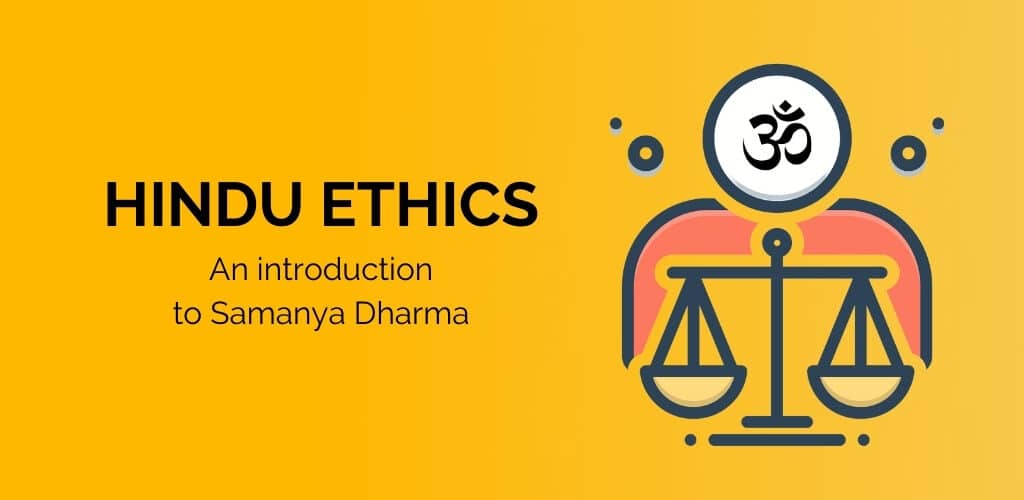
Hindu Ethics: An introduction to Samanya Dharma
Samanya Dharma refers to ethical duties that every person is expected to practice in life in order to contribute to the building of an enlightened society. Practicing Hindus must continuously endeavor to align with these eternal principles, so as to attain fulfillment and happiness in life, and establish harmony and order in the larger society.
This Indica Course is for learners looking for a deeper engagement with Sanatan Dharma, especially its ethical foundations.
Faculty
10 November 2021 - 12 January 2022
5-6:30 PM IST
Every Wednesday
Introduction
The Hindu worldview is built around the principle of Dharma. As the name “Sanatana Dharma” itself denotes, Hindu philosophy and practice is essentially a perpetual striving for the actualization of the eternal principles of Dharma, which are understood as governing the life of entire universe and all the beings who inhabit in it.
Samanya Dharma refers to ethical duties that every person is expected to practice in life in order to contribute to the building of an enlightened society. Practicing Hindus must continuously endeavor to align with these eternal principles, so as to attain fulfillment and happiness in life, and establish harmony and order in the larger society.
This Indica Course is for learners looking to understand the ethical teachings of Hindu Dharma and anchor themselves to Dharmic principles.
Expected Outcomes
This Indica Course will provide
- A comprehensive perspective on Dharma, its definition, and types
- An overview of different sources of Dharma and how to understand them
- A detailed enunciation on different ethical tenets that are enunciated in Sruti, Smriti, Itihasa, Purana and other Hindu texts
- An understanding of the practical relevance of Samanya Dharma in one’s life, society, and spiritual journey
- An introduction to the notion of ‘Vishesha Dharma’ and ‘Adharma’
Syllabus
- Introduction: Purusharthas & Finding Meaning in Life
- What is Dharma? Definition & Types
- Definition of Dharma
- Rta, Satya & Dharma
- Types of Dharma-I: Pravritti & Nivritti Dharma
- Types of Dharma-II: Samanya & Vishesha Dharma
- How to determine Dharma & Adharma? Notion of Pramana
- Definition & Types of Pramanas
- Shabda Pramana
- Dharmashastras as the principal means of knowing Dharma
- Tenets of Samanya Dharma: A Review of Primary Texts
- Sruti
- Smriti
- Itihasa
- Purana
- Other texts
- Samanya Dharma, Society, & Spirituality
- An Introduction to Vishesha Dharma
- Decoding Adharma
Reading List
Textbook Used: Samanya Dharma- Ethical Duties common to all by Nithin Sridhar
Primary Texts: Manusmriti, Yajnavalkya Smriti, Mahabharata, Puranas, and more

